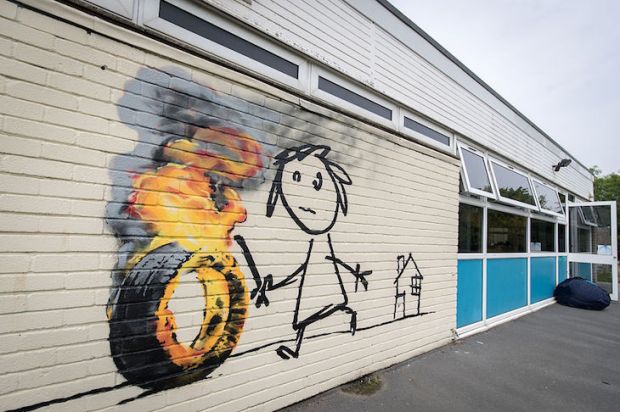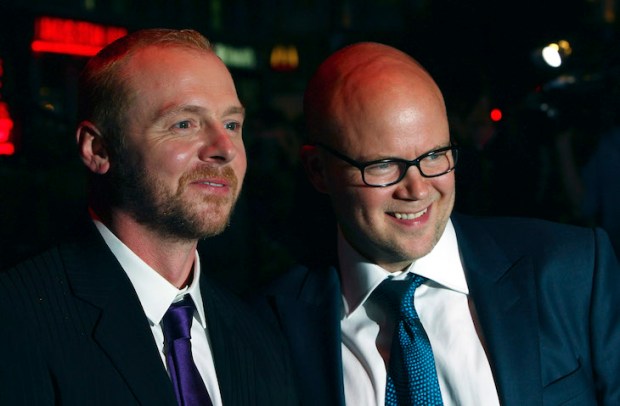I first locked horns with Michael Rosen, the former children’s laureate, on Sky News about four years ago. We were debating the merits of trying to teach all children the best that’s been thought and said and quickly got on to the subject of whether the grammar school education we’d received would be appropriate for everyone, or just those who passed the eleven plus. My view, then and now, is that it would. His view, if I remember it correctly, is that grammar schools aren’t suitable for anyone, gifted or otherwise. He had only survived his by the skin of his teeth.
Since then we’ve clashed a few times. He’s been an energetic critic of the coalition’s education reforms, writing a monthly column in the Guardian entitled ‘Dear Mr Gove’. I’ve always found it slightly irksome that he’s introduced as an expert on primary education when, in fact, his reason for opposing the government is because he’s a militant socialist. Not just a Guardianista, but a regular contributor to Socialist Worker. To be fair, he doesn’t make any attempt to disguise his radical politics. In every debate he participates in, it’s only a matter of time before the bug-eyed left-wing zealot emerges from beneath the woolly-jumpered exterior.
Coincidentally, we’ve both just written books on the same subject — what parents can do to help educate their children. Mine is called What Every Parent Needs to Know (co–written with Miranda Thomas), while his is called Good Ideas. What’s remarkable about the two books, given that we’re at opposite ends of the political spectrum, is how similar they are. I don’t just mean that they contain exactly the same advice when it comes to homework and the like. I mean that the fundamental aims of the books are virtually identical.
For one thing, we both think it’s beneficial for parents to get involved in their children’s education. The evidence is incontrovertible. Two American psychologists called Betty Hart and Todd Risley discovered that by the age of four, children of middle-class professionals will have heard, on average, 32 million more words than children of welfare recipients. This finding — known as ‘the 32 million word deficit’ — helps explain why middle-class children do so much better at school than poor children. I think it’s fair to say that both Rosen and I hope our books will play a small part in addressing that.
We also share another common aim, which is that we want to democratise knowledge. We both think it’s wrong that the sort of learning that’s prized most highly by our society — that leads to high-paying jobs and superior social status — is largely confined to the elite. Indeed, we share a Marxist analysis of this issue and understand that one of the ways in which the ruling class perpetuates its power is by monopolising knowledge.
Where we part company is in our solution to this problem. Rosen is a member of the progressive school who believes that the best way to break the link between knowledge and power is to challenge the idea that some facts are more worth knowing than others. He thinks old-fashioned ‘book learning’ — the sort of knowledge taught in the grammar school he went to — is just one way of looking at the world, no better or worse than any other.
This is the dominant theme of Good Ideas — that the best way to help children become enthusiastic learners is not to be dogmatic about what they should be learning. If they know a great deal about, say, Chelsea Football Club, then don’t do anything to give them the impression that it’s less valuable than knowing about Ancient Rome. They should be allowed to follow their natural impulses, ranging across different subjects, discovering things as they go, because, at bottom, all knowledge is equally valid.
My solution, by contrast, is to accept that some types of knowledge will always be more valuable than others — astronomy, for instance, will always be more useful than -astrology — and for that reason there will always be a connection between ‘book learning’ and power. But that doesn’t mean this superior knowledge should remain the preserve of the privileged elite. Rather, it should be shared with as many people as possible. This is the idea behind trying to teach all children the best that’s been thought and said.
That, in a nutshell, is the difference between progressives and traditionalists in the education debate. We both want to democratise knowledge, we just disagree about how to do that.
Got something to add? Join the discussion and comment below.
Get 10 issues for just $10
Subscribe to The Spectator Australia today for the next 10 magazine issues, plus full online access, for just $10.
Toby Young is associate editor of The Spectator.
You might disagree with half of it, but you’ll enjoy reading all of it. Try your first month for free, then just $2 a week for the remainder of your first year.














Comments
Don't miss out
Join the conversation with other Spectator Australia readers. Subscribe to leave a comment.
SUBSCRIBEAlready a subscriber? Log in